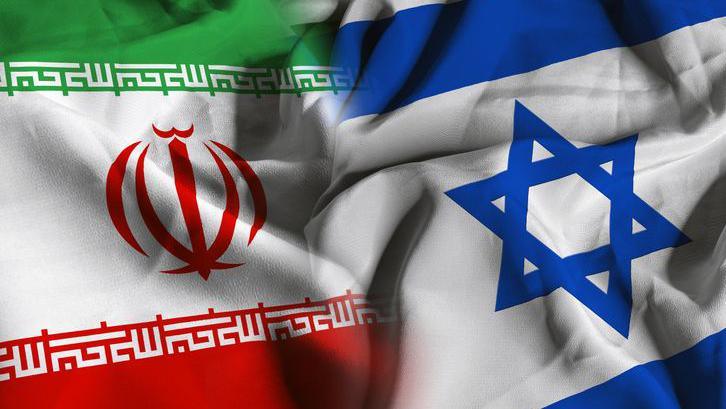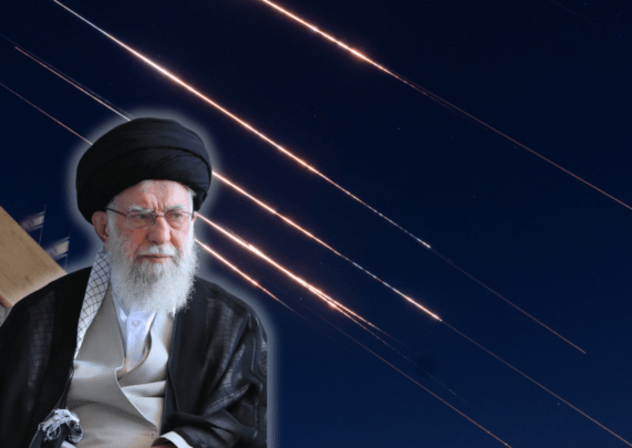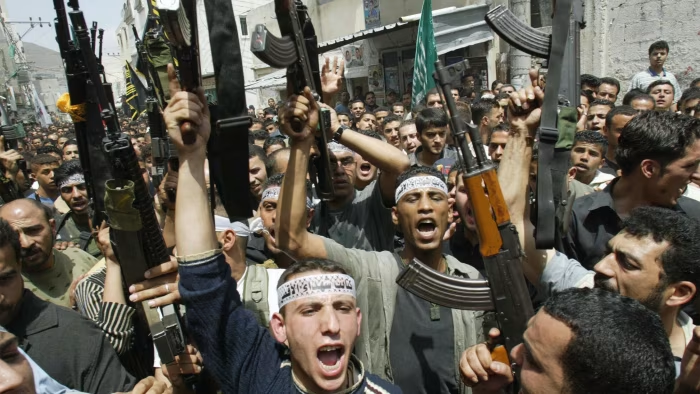The Islamic Republic of Iran, a nation perpetually at the center of geopolitical turbulence, finds itself under an increasingly harsh spotlight. A convergence of escalating nuclear activities, profound internal pressures, and aggressive regional posturing has brought Tehran to what many observers describe as a critical juncture. While the regime steadfastly proclaims its nuclear ambitions are for 'peaceful purposes,' a wealth of intelligence and a pattern of behavior suggest a far more ominous agenda, primarily the development of nuclear weapons aimed squarely at its declared enemy, Israel. This narrative of duplicity forms the volatile core of a crisis threatening to engulf the Middle East and send shockwaves across the globe.
The Nuclear Charade: Weeks from Weaponization?
Iran's official stance on its nuclear program—that it is solely for energy production and medical research—is crumbling under the weight of mounting evidence and international skepticism. Reports indicate that Iran is perilously close, perhaps 'weeks' or 'months,' from possessing the capability to produce a nuclear bomb. Highly fortified sites like Fordow and the Arak heavy water reactor, a potential source of plutonium, are central to these concerns. This rapid advancement directly contradicts Tehran's 'peaceful purposes' narrative, fueling fears of an imminent breakout capability.
Adding to the alarm, US President Trump has reportedly approved detailed attack plans targeting these Iranian nuclear facilities, with specific mentions of the GBU-57 'bunker buster' munitions for deeply buried sites like Fordow. While a final decision to strike remains ostensibly pending, with ambiguous statements such as 'I may do it, I may not do it,' preparations like the evacuation of US citizens from Israel underscore the perceived immediacy of the threat. This aggressive US posture is set against President Trump's demand for Iran's 'UNCONDITIONAL SURRENDER,' a stance that leaves little room for diplomatic maneuver if Iran continues its current trajectory. The claim that Iran is 'weeks' from a bomb, often attributed to US and Israeli leaders, starkly contrasts with some US intelligence assessments that suggest no active, immediate rush to weaponization, though these dissenting views, notably from figures like DNI Tulsi Gabbard who is reportedly sidelined, appear to be increasingly marginalized in policy circles.
A Regime Under Internal Siege
Beyond the external pressures of its nuclear standoff, the Iranian regime is grappling with significant and growing internal vulnerabilities. A string of successful and highly disruptive cyberattacks has exposed the fragility of its critical infrastructure. The reported $90 million loss at the Nobitex cryptocurrency exchange and widespread disruptions to ATMs and gas stations attributed to the 'Predatory Sparrow' hacking group targeting Bank Sepah highlight a persistent cyber warfare front that is clearly impacting the Iranian state and its populace.
These technological breaches compound existing civilian fear and a palpable lack of public safety infrastructure. Reports from within Iran paint a picture of a nervous citizenry, particularly those living in proximity to IRGC or Intelligence Ministry facilities, fearing they could become targets in a potential conflict. Online, Iranian youth express growing discontent with the regime's oppressive policies and economic mismanagement. This internal frailty is a critical factor often downplayed by Tehran but increasingly evident to outside observers.
Military Posturing Meets Operational Struggles
Despite its bellicose rhetoric and continued investment in missile technology, Iran's military capabilities are portrayed as increasingly strained. A recent, devastating Iranian missile strike that hit an Israeli hospital, resulting in civilian casualties and significant damage, drew widespread international condemnation and showcased a reckless disregard for civilian lives. This act of aggression, however, is juxtaposed with reports from entities like the Institute for the Study of War (ISW) indicating that Iran is struggling to coordinate large-scale missile strikes effectively. The volume of such strikes has reportedly decreased, and Iran has been forced to utilize different, potentially less optimal, launch sites in central Iran.
While Iranian air defenses have demonstrated some effectiveness, reportedly downing an Israeli drone and proving more resilient than initially assessed by Israel, the overall picture is one of a military stretched thin and facing significant operational challenges. Supreme Leader Ali Khamenei continues to issue defiant threats against the United States, but the practical ability to project sustained, decisive force remains questionable when contrasted with the internal and external pressures mounting against his regime.
The Diplomacy of Defiance
Contradictory signals emanate from Tehran regarding its willingness to engage in meaningful negotiations. While President Trump asserts that Iran 'wants to negotiate,' this is paired with the uncompromising demand for 'UNCONDITIONAL SURRENDER.' On the Iranian side, Supreme Leader Khamenei and other hardline officials vehemently reject any notion of surrender, stating unequivocally that Iran will not negotiate 'under duress' and continue to issue threats against the US. Simultaneously, some Iranian officials have subtly signaled an openness to diplomacy, albeit excluding any direct talks with Israel. European diplomatic efforts, exemplified by the ongoing E3 talks (France, Germany, UK), continue, but against a backdrop of deep mistrust and escalating tensions, their prospects for a breakthrough appear dim. The IAEA's persistent concerns over Iran's lack of cooperation and transparency further complicate diplomatic avenues, with Iran frequently accusing the nuclear watchdog of bias, a tactic seen by critics as an attempt to evade scrutiny.
Mounting International Isolation and the Specter of Regime Change
The international community remains deeply divided yet increasingly alarmed by Iran's actions. Australia has publicly called for Iran to halt its nuclear weapons program. Pakistan has closed its border with Iran due to the escalating conflict, a significant move by a neighboring state. Even Russia, while warning the US against military intervention, has also made claims about Iranian societal consolidation, a narrative that seems to counter Western assessments of the regime's internal fragility but also underscores Moscow's strategic alignment with Tehran.
The narrative of regime change, long a taboo subject, is now being actively discussed in international circles. President Trump himself has stated that the collapse of the Islamic Republic is a possibility. German Chancellor Olaf Scholz (corrected from Merz as Chancellor, Merz is opposition leader who supports regime end) has voiced support for an end to the current regime, even if citing a factually contentious comparison to Syria. Israeli President Isaac Herzog, while denying regime change as an official objective, has suggested it could bring peace to the region. Prominent commentators and political figures in the West openly frame the conflict and its potential escalation in terms of achieving regime change in Iran. Conversely, French President Emmanuel Macron has warned against such ambitions, citing the risks of regional chaos and a power vacuum, reminiscent of the long-term consequences of the 1953 Western-backed coup in Iran.
The Inescapable Risks of Escalation
The current trajectory points towards a significant risk of major escalation and a wider regional conflict should direct military intervention occur. Iranian officials have starkly warned of 'all-out war' and 'irreparable damage' to US interests and forces in the region, with reports suggesting missiles are readied to target American bases. Russia has cautioned against a 'nuclear catastrophe' and further destabilization. Experts across the spectrum warn that military strikes could open a 'Pandora’s box,' leading to a prolonged and bloody quagmire with potentially heavy US casualties. Doubts also persist among some US defense officials regarding the definitive effectiveness of conventional strikes, such as those using GBU-57 'bunker busters,' against deeply buried and hardened facilities like Fordow.
The economic fallout for the American public and the global economy is another grave concern. Increased US gas prices, which have already seen a surge, are widely predicted as an immediate consequence of heightened conflict involving a major oil-producing region.
As Iran continues its provocative dance on the nuclear precipice, its regime simultaneously battles internal decay and mounting international condemnation. The persistent claim of 'peaceful purposes' for its nuclear program rings increasingly hollow against the backdrop of its actions and the dire warnings from multiple quarters. The world watches, holding its breath, as the countdown to a potential catastrophe—be it through military strike, internal collapse, or uncontrolled nuclear proliferation—continues, fueled by Tehran's dangerous ambitions and profound deceptions.


